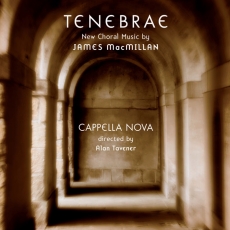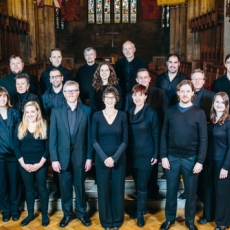MacMillan: Tenebrae - Cappella Nova - Atlanta Audio Society
As a Catholic in the modern world, James MacMillan finds himself in the position of being the artistic emissary of a misperceived faith, thanks in great part to the religious fanaticism of the age. "We live in a time of renewed secular aggression about religion and a lack of the nuances of religion," he says in an interview with Capella Nova co-founder Rebecca Tavener. "This is very worrying and it doesn't make for a complex and nuanced understanding or even discussion about religious matters."
As a composer, MacMillan does his best to set the nuances in a clear light while composing music that is of real use and significance to actual church choirs, and not just the more professional sounding a capella vocal ensembles such as Capella Nova, the group heard on the present offering from Linn Records. MacMillan's early education, which included hearing and performing the polyphony of old masters such as Byrd, Palestrina, and Lassus as well as the influence of modern composers like Benjamin Britten and his mentor, fellow Scot Kenneth Leighton, is felt in such works as the seven Strathclyde Motets heard in this recording. In these motets there is an increased concern for color and for time, conceived in terms of "liturgical time."
"There's a kind of suspended animation about [the Motets]", says MacMillan, "They don't seem to go anywhere, they kind of float as an entity, and there are one or two ideas that sort of ease into being and just exist." There is a certain mystic quality to them, going beyond the simpler "user-friendliness" of his earlier Missa Brevis, designed for the use of most good parish church choirs. They may be thought of as "Communion motets," for the purpose of enhancing sacred worship at a moment when the communicants are in a mood of quiet meditation after receiving the sacrament (at least those who aren't worried about getting home in time for the opening kick-off). One of the Motets, "In splendoribus sanctorum" (In the splendor of Thy Holiness) is distinguished by the lone use of an instrument in an otherwise wholly vocal program. Here, a trumpet plays a semi-improvised virtuoso accompaniment whose busy elaborations and rising tone contrast beautifully with the slow, unhurried tonal progressions of the choir.

